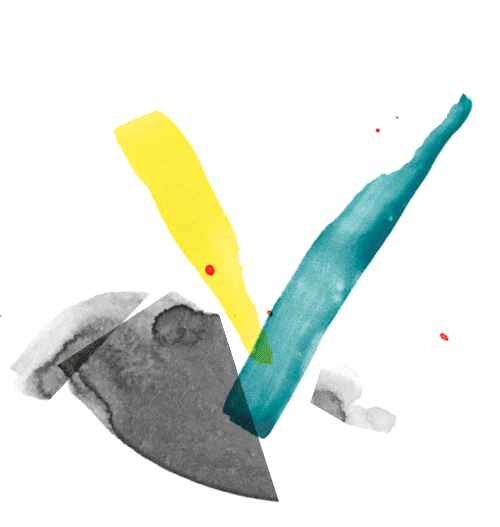

Sign up for our newsletters. You can change the settings or unsubscribe at any time.
Thank you for your subscription. We have sent you an e-mail with a confirmation link.


exp. 1
exp. 2
exp. 3

Die Remise
Was part of: exp. 1
Die Remise
Ali Akyol, Jacqueline Aslan, Stefan Bast, Muriel Biedrzycki, Julia Brunner, Fatma Cakmak, Stefan Endewardt, Tobi Euler, Melina Gerstemann, Ayşe Güleç, Juanita Kellner, Angelika Levi, Carmen Mörsch, Shanti Suki Osman, Ayse Preissing, Markus Schega, Miriam Schickler, Aylin Turgay and pupils from the Nürtingen and Heinrich-Zille elementary schools and guests: Çiçek Bacık, Aïcha Diallo, Saraya Gomis, Kotti-Shop, Annika Niemann, Tuğba Tanyılmaz
Founded 2018 in Berlin, DE
Die Remise is a living archive, a meeting place, a learning and exhibition space for visitors of all ages. The project started with the archive of the Nürtingen Elementary School set up in an old carriage house in the schoolyard as a way of looking into the history of schools and migration in the surrounding neighborhood of Berlin-Kreuzberg. Die Remise deals with the history of institutional racism in German schools, in an attempt to bring forward the marginalized voices of those who attended the school from the 1960s onwards, some now the parents of current pupils. The space attempts to bring neighbors, students, and teachers together to meet and share these silenced stories in a safe and welcoming environment. By helping these stories to be told, Die Remise intends to raise consciousness on the impact that perpetuated whiteness has had on the education system. This racialization and structural discrimination is still experienced by families today, and similar archives exist silently, in schools and homes, all around us.
For the first exhibition of Die Remise in February 2019, students, together with contemporary artists, drew on archival material from the school to ask what kind of knowledge is important for them to bring forward and how it should be displayed. Dislocating Die Remise by showing it here is an invitation not only to engage with stories coming from a different neighborhood of the city, but also to share the stories you carry with you.
Undocumented Rumours and Disappearing Acts from Chile
María Berríos
Essay
Invitation to the Species: Cecilia Vicuña
Tamaas / Cecilia Vicuña
Podcast
Struggle as Culture: The Museum of Solidarity, 1971–73
María Berríos
Essay
Feminist Health Care Research Group
Web archive
III: La familia son quiénes se alegran con nuestros actos diarios. Detrás de las curadoras de la XI
María Berríos, Agustín Pérez Rubio
Conversation
I: Junto a las curadoras de la XI Berlin Biennale for Contemporary Art
Renata Cervetto, Lisette Lagnado
Conversation
By using this website you agree to the use of cookies in accordance with our data privacy policy.

Die Remise
Was part of: exp. 1
Die Remise
Ali Akyol, Jacqueline Aslan, Stefan Bast, Muriel Biedrzycki, Julia Brunner, Fatma Cakmak, Stefan Endewardt, Tobi Euler, Melina Gerstemann, Ayşe Güleç, Juanita Kellner, Angelika Levi, Carmen Mörsch, Shanti Suki Osman, Ayse Preissing, Markus Schega, Miriam Schickler, Aylin Turgay and pupils from the Nürtingen and Heinrich-Zille elementary schools and guests: Çiçek Bacık, Aïcha Diallo, Saraya Gomis, Kotti-Shop, Annika Niemann, Tuğba Tanyılmaz
Founded 2018 in Berlin, DE
Die Remise is a living archive, a meeting place, a learning and exhibition space for visitors of all ages. The project started with the archive of the Nürtingen Elementary School set up in an old carriage house in the schoolyard as a way of looking into the history of schools and migration in the surrounding neighborhood of Berlin-Kreuzberg. Die Remise deals with the history of institutional racism in German schools, in an attempt to bring forward the marginalized voices of those who attended the school from the 1960s onwards, some now the parents of current pupils. The space attempts to bring neighbors, students, and teachers together to meet and share these silenced stories in a safe and welcoming environment. By helping these stories to be told, Die Remise intends to raise consciousness on the impact that perpetuated whiteness has had on the education system. This racialization and structural discrimination is still experienced by families today, and similar archives exist silently, in schools and homes, all around us.
For the first exhibition of Die Remise in February 2019, students, together with contemporary artists, drew on archival material from the school to ask what kind of knowledge is important for them to bring forward and how it should be displayed. Dislocating Die Remise by showing it here is an invitation not only to engage with stories coming from a different neighborhood of the city, but also to share the stories you carry with you.
El primer nueva corónica y buen gobierno
Felipe Guamán Poma de Ayala
Chronicle
COVID-19 VIDEOS
Carlos Motta
Video
Expresiones de la locura: el arte de los enfermos mentales
Hans Prinzhorn
Monograph
#fight4rojava
Graffiti
IV: How Fear Can Dismantle a Body. Vis-a-Vis with two of four curators of the 11th Berlin Biennale
María Berríos, Lisette Lagnado
Conversation
St Sara Kali George
Delaine Le Bas
Soundscape
By using this website you agree to the use of cookies in accordance with our data privacy policy.

Die Remise
Was part of: exp. 1
Die Remise
Ali Akyol, Jacqueline Aslan, Stefan Bast, Muriel Biedrzycki, Julia Brunner, Fatma Cakmak, Stefan Endewardt, Tobi Euler, Melina Gerstemann, Ayşe Güleç, Juanita Kellner, Angelika Levi, Carmen Mörsch, Shanti Suki Osman, Ayse Preissing, Markus Schega, Miriam Schickler, Aylin Turgay and pupils from the Nürtingen and Heinrich-Zille elementary schools and guests: Çiçek Bacık, Aïcha Diallo, Saraya Gomis, Kotti-Shop, Annika Niemann, Tuğba Tanyılmaz
Founded 2018 in Berlin, DE
Die Remise is a living archive, a meeting place, a learning and exhibition space for visitors of all ages. The project started with the archive of the Nürtingen Elementary School set up in an old carriage house in the schoolyard as a way of looking into the history of schools and migration in the surrounding neighborhood of Berlin-Kreuzberg. Die Remise deals with the history of institutional racism in German schools, in an attempt to bring forward the marginalized voices of those who attended the school from the 1960s onwards, some now the parents of current pupils. The space attempts to bring neighbors, students, and teachers together to meet and share these silenced stories in a safe and welcoming environment. By helping these stories to be told, Die Remise intends to raise consciousness on the impact that perpetuated whiteness has had on the education system. This racialization and structural discrimination is still experienced by families today, and similar archives exist silently, in schools and homes, all around us.
For the first exhibition of Die Remise in February 2019, students, together with contemporary artists, drew on archival material from the school to ask what kind of knowledge is important for them to bring forward and how it should be displayed. Dislocating Die Remise by showing it here is an invitation not only to engage with stories coming from a different neighborhood of the city, but also to share the stories you carry with you.
Hatred Among Us
Lisette Lagnado
Essay
II: La Solidaridad va Más Allá de un Concepto. Entre las Curadoras de la XI Berlin Biennale
Lisette Lagnado, Agustín Pérez Rubio
Conversation
Struggle as Culture: The Museum of Solidarity, 1971–73
María Berríos
Essay
III: La familia son quiénes se alegran con nuestros actos diarios. Detrás de las curadoras de la XI
María Berríos, Agustín Pérez Rubio
Conversation
Glossary of Common Knowledge
L’Internationale Online
Glossary
A World Without Bones
Agustín Pérez Rubio
By using this website you agree to the use of cookies in accordance with our data privacy policy.

Die Remise
Was part of: exp. 1
Die Remise
Ali Akyol, Jacqueline Aslan, Stefan Bast, Muriel Biedrzycki, Julia Brunner, Fatma Cakmak, Stefan Endewardt, Tobi Euler, Melina Gerstemann, Ayşe Güleç, Juanita Kellner, Angelika Levi, Carmen Mörsch, Shanti Suki Osman, Ayse Preissing, Markus Schega, Miriam Schickler, Aylin Turgay and pupils from the Nürtingen and Heinrich-Zille elementary schools and guests: Çiçek Bacık, Aïcha Diallo, Saraya Gomis, Kotti-Shop, Annika Niemann, Tuğba Tanyılmaz
Founded 2018 in Berlin, DE
Die Remise is a living archive, a meeting place, a learning and exhibition space for visitors of all ages. The project started with the archive of the Nürtingen Elementary School set up in an old carriage house in the schoolyard as a way of looking into the history of schools and migration in the surrounding neighborhood of Berlin-Kreuzberg. Die Remise deals with the history of institutional racism in German schools, in an attempt to bring forward the marginalized voices of those who attended the school from the 1960s onwards, some now the parents of current pupils. The space attempts to bring neighbors, students, and teachers together to meet and share these silenced stories in a safe and welcoming environment. By helping these stories to be told, Die Remise intends to raise consciousness on the impact that perpetuated whiteness has had on the education system. This racialization and structural discrimination is still experienced by families today, and similar archives exist silently, in schools and homes, all around us.
For the first exhibition of Die Remise in February 2019, students, together with contemporary artists, drew on archival material from the school to ask what kind of knowledge is important for them to bring forward and how it should be displayed. Dislocating Die Remise by showing it here is an invitation not only to engage with stories coming from a different neighborhood of the city, but also to share the stories you carry with you.
Glossary of Common Knowledge
L’Internationale Online
Glossary
BLM KOREA ARTS
#BlackLivesMatter #BLMKoreaArts
Young-jun Tak
Statement
IV: How Fear Can Dismantle a Body. Vis-a-Vis with two of four curators of the 11th Berlin Biennale
María Berríos, Lisette Lagnado
Conversation
I: Junto a las curadoras de la XI Berlin Biennale for Contemporary Art
Renata Cervetto, Lisette Lagnado
Conversation
Struggle as Culture: The Museum of Solidarity, 1971–73
María Berríos
Essay
#fight4rojava
Graffiti
By using this website you agree to the use of cookies in accordance with our data privacy policy.
By using this website you agree to the use of cookies in accordance with our data privacy policy.




